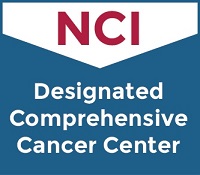Childhood Cancers and Blood Diseases: Informed Answers for Tough Questions
Parents and caregivers don't have to handle the tough questions that come along with a child's cancer or blood disease diagnosis alone. At the University of Maryland Children's Hospital, families have the support of a network of caregivers to help address the concerns of kids with cancer. This article appeared in Pediatric Press (fall 2009), the division's newsletter.
Parents often spend a lot of time answering questions: Why do I have to go to bed? Why do I have to share? Why can't I have a cookie? Parents and caregivers of children with cancer also get "why" questions a lot. But these questions are a little more difficult to answer.
"Children want to know why they miss more school than other kids, why they can't play outside when their blood cell count is low, or why their hair may fall out," says pediatric oncologist Teresa A. York, MD, assistant professor of pediatrics at the University of Maryland School of Medicine. "Kids don't stop being kids just because they have cancer."
And kids don't have to stop being kids at the University of Maryland Children's Hospital. The pediatric oncology/hematology team members specialize in the most up-to-date diagnostic services, treatments and technology for blood diseases and cancer. But they also specialize in kids.
"It makes a difference to children that we know them personally and talk about things that have nothing to do with cancer," Dr. York says. "We get to know our patients – their likes, dislikes and what really matters to them."
Family-Centered Support
Parents and caregivers don't have to handle the tough questions that come along with a child's cancer or blood disease diagnosis alone. They can lean on the shoulders of pediatric hematologists/oncologists, radiation oncologists, surgical oncologists, and nurses in the Pediatric Oncology/Hematology Division for support.
"The minute a child walks through our doors, we begin treating the whole family," Dr. York says. "Our biggest goal is to find the best treatment for each child or young person. But we're also here for parents and caregivers who are dealing with their child's and their own emotions."
An on-site social worker and certified child life specialists help all family members deal with fear, confusion, stress or other emotional issues. "Whether you're age 5 or 95, cancer is a family disease," Dr. York says. "When every member of a family feels supported, they are empowered to help each other cope much more effectively."
Private-Practice Feel
The University of Maryland's cancer care ranks among the top tier nationwide with dozens of clinical trials and internationally recognized experts in cancer research. The Division of Pediatric Oncology/Hematology offers all of these benefits while still keeping its small community-like feel.
"One of the biggest advantages about our Division is that we are part of the University of Maryland's NCI-designated cancer center," Dr. York explains. "Our patients receive state-of-the-art care with a private-practice feel."
Patients are kept out of the hospital for the most part, but when they have to be admitted, they can enjoy private, recently renovated rooms – with an extra comfortable chair that folds out for family members who want to spend the night. The rooms have bright, colorful murals and a "window" on the ceiling over the bed with realistic images of trees and a blue sky background.
More Research Under Way
Overall, four out of five children diagnosed with cancer can be successfully treated.* Right now, research is underway to find more treatment options.
"Cancer care has come a long way, but not far enough," Dr. York says. "Our amazing young patients inspire us every day. We listen to their suffering and their complaints so that we can find more cures."
The Division is part of the Children's Oncology Group – 250 institutions nationwide treating children with cancer – that offers the latest clinical trials. "Even if a family doesn't want to participate in a trial, we have many other treatments available – each one backed with support and hope," Dr. York says.
Source: Children's Cancer Research Fund.
Parents and caregivers of children with cancer and blood disease have "why" questions too. The Pediatric Hematology/Oncology Division at the University of Maryland Hospital ensures that everyone's questions get the attention that they deserve. For more information or to make an appointment, please call 1-800-492-5538.


